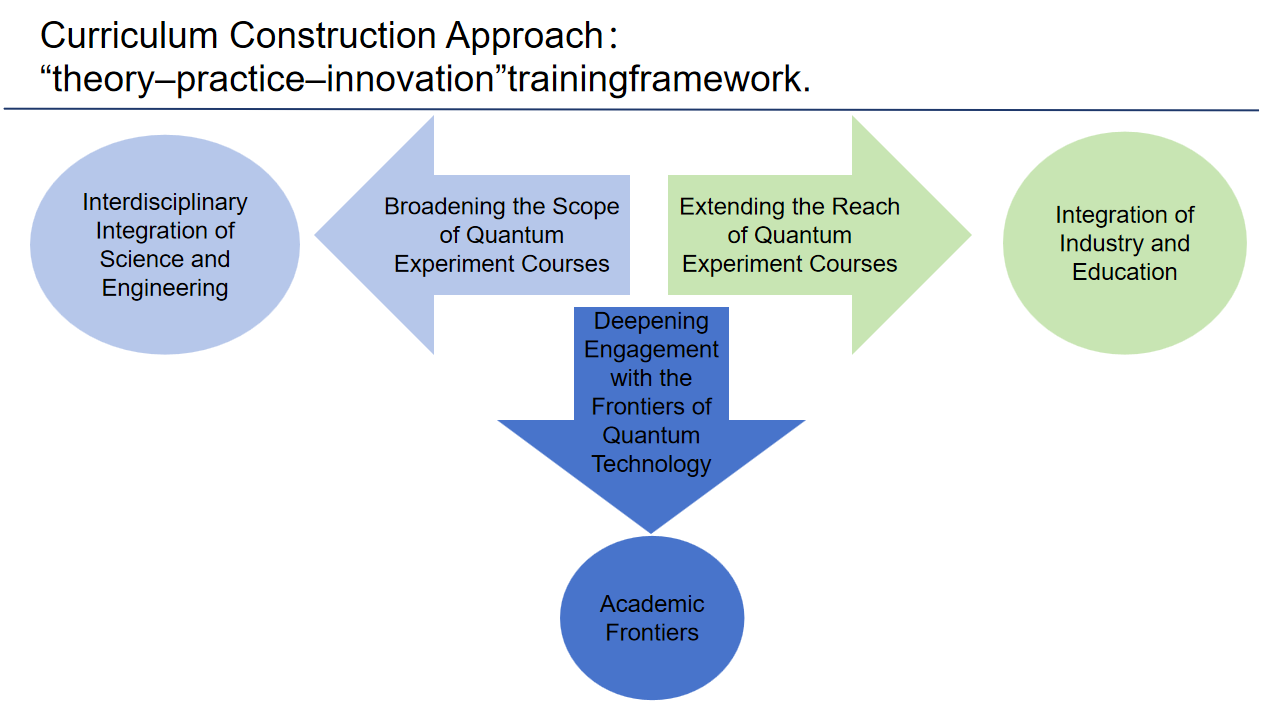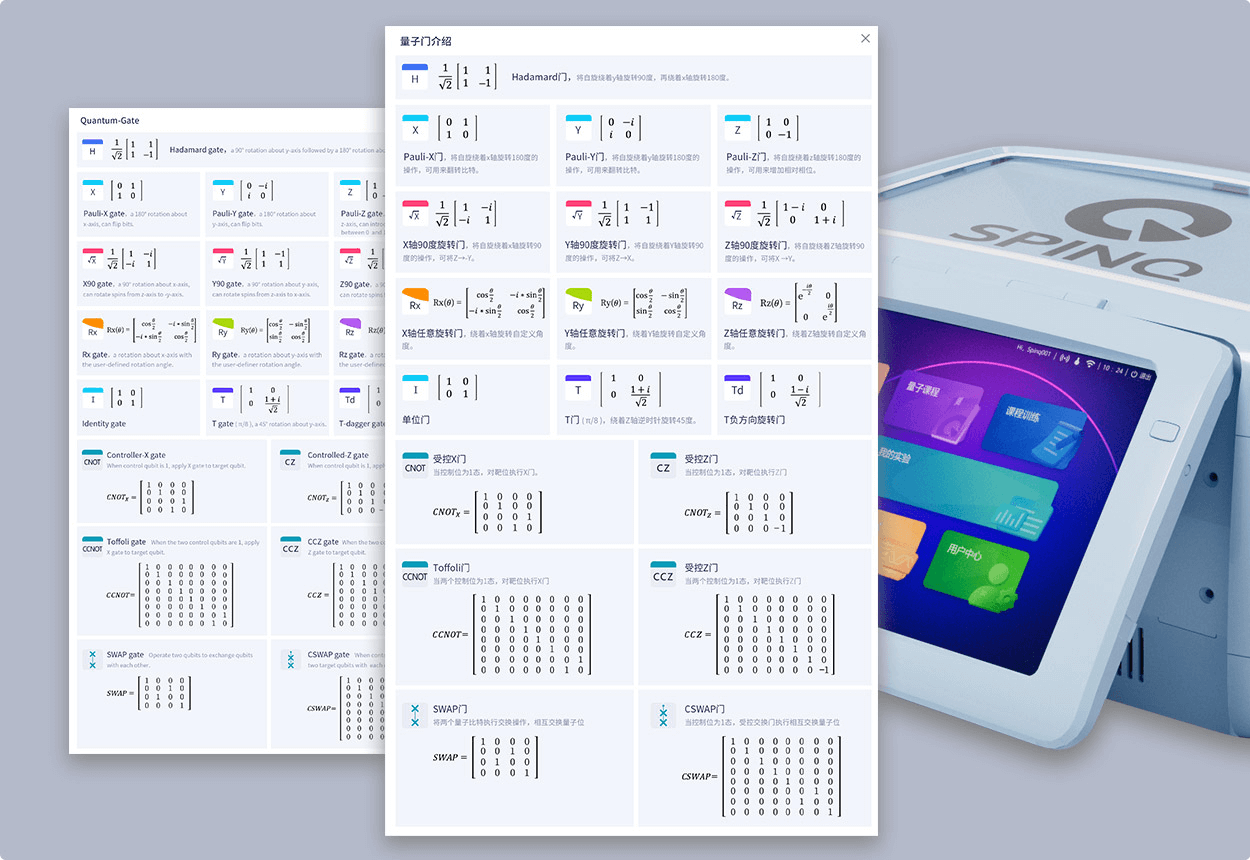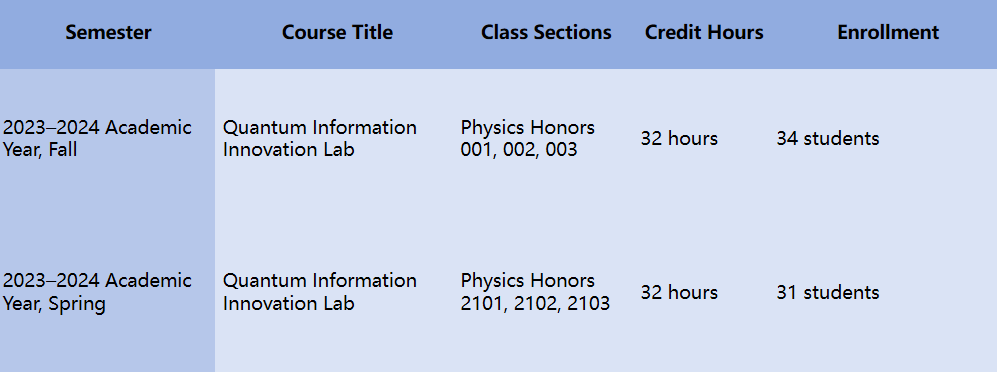Xi'an Jiaotong University Partners with SpinQ: Co-developing the "8+2+X" Quantum Laboratory Innovation Curriculum
2025.05.29 · Press Release quantum educationquantum learning
Against the backdrop of rapid global advances in quantum technology—and with China designating it as a strategic focus in the 14th Five-Year Plan—quantum science has become a national priority, placing dual demands on universities for both scientific breakthroughs and talent cultivation.
As a longstanding center for physics education in China, the School of Physics at Xi'an Jiaotong University traces its origins to the Department of Physics of Jiaotong University, established in 1928. Over the past century, it has developed a distinctive academic tradition characterized by strong foundations, high standards, and an emphasis on practical training.
Building on its deep disciplinary roots, the university has proactively expanded into frontier fields such as quantum information processing and quantum computing, becoming one of the first institutions in China to incorporate quantum computing fundamentals into its "Strengthening Basic Disciplines Plan" (Qiangji Plan) curriculum.
To address challenges in traditional laboratory teaching—such as insufficient interdisciplinary integration and a disconnect between experimental practice and real-world industry needs—Xi'an Jiaotong University has launched the development of an "Innovative Laboratory Curriculum for Quantum Information Technology."
SpinQ has participated deeply in this initiative, helping to advance quantum education from theoretical instruction toward real-world application.

Faculty and Research as Dual Pillars: Laying a Strong Foundation for Quantum Education
The School of Physics at Xi'an Jiaotong University remains at the forefront of disciplinary development, with sustained efforts in areas such as quantum integrable systems and ultracold atomic quantum simulation within theoretical physics, and breakthroughs in super-resolution imaging, quantum measurement, quantum information, and quantum computing within optics. This integrated approach has fostered a robust academic ecosystem that values both fundamental research and application-oriented exploration.
A key initiative is led by Professor Zhang Pei, whose interdisciplinary team brings together faculty members from physics, computer science, and electronic engineering. The team is dedicated to advancing quantum science education and research by developing a comprehensive "theory–practice–innovation" training framework.
In response to long-standing imbalances in traditional instruction—where theoretical emphasis often outweighs hands-on practice—the team has proposed an innovative "T-shaped" structure for the quantum information laboratory curriculum. This "two-horizontal, one-vertical" model aims to systematically build student capabilities across foundational skills, interdisciplinary integration, and application-driven experimentation.
-
Horizontal Expansion: The curriculum integrates technologies from telecommunications, measurement, and computer science, promoting interdisciplinary collaboration across engineering fields. This broadens the scope of quantum laboratory instruction. The introduction of the SpinQ Gemini Mini—a portable NMR-based quantum computer—enables practical, device-based learning. Through a co-teaching model involving both university faculty and industry professionals, real-world applications are brought into the classroom, enhancing the practical breadth of the program.
-
Vertical Depth: Leveraging the resources of key laboratories, advanced research tools such as optical tweezers and atomic fountain clocks have been transformed into experimental projects. These initiatives guide students in engaging with cutting-edge topics in quantum information science, fostering a deeper progression from theoretical understanding to technical innovation.

The "8+2+X" Innovative Laboratory Framework: A Full-Cycle Training Model from Fundamentals to Industry Integration
To address the common challenge in traditional laboratory education—emphasis on theory over hands-on experience—Xi'an Jiaotong University has introduced the "8+2+X" innovative experimental curriculum for quantum information technology.
At the core of this system are multiple SpinQ Gemini Mini units, which serve as the primary hardware platform supporting practical instruction.
This curriculum framework is designed to provide a full-chain training path, spanning from fundamental principles to real-world industrial relevance. The experimental modules include:
-
8 Core Foundational Experiments: These include classical quantum experiments such as quantum state preparation (e.g., Bell state generation), quantum logic gate operations, and Rabi oscillation observation. Using the intuitive graphical interface of the SpinQ Gemini Mini, students can easily perform the full process—from qubit definition to quantum algorithm debugging—gaining hands-on experience with key quantum computing concepts.
-
2 Virtual Simulations: These consist of experiments such as the cesium atomic fountain clock and the study of orbital angular momentum of light. Delivered via online simulation platforms, they help students gain a deeper understanding of theoretical concepts and physical principles through interactive virtual environments.
-
X Research and Innovation Projects: Students are encouraged to engage in research-based innovation using the university's experimental facilities. SpinQ also provides access to resources such as its quantum cloud computing platform and quantum chip design services, supporting advanced-level students in conducting independent or guided research in quantum computing.
SpinQ Gemini Mini: Redefining the Benchmark for Quantum Computing Education Platforms
The SpinQ Gemini Mini, customized by SpinQ for Xi'an Jiaotong University, offers three core advantages that align precisely with the instructional needs of higher education institutions:
-
Enhanced Usability for an Improved Teaching Experience: Compact in size and free from the need for cryogenic or vacuum infrastructure, the SpinQ Gemini Mini can be deployed directly in standard teaching laboratories. Each device supports small-group experiments (4–6 students), transforming quantum computing from a research-only tool into a standard component of undergraduate education.
-
Multi-Level Learning Framework Across Academic Stages: The system offers a dual-layer interface—Python programming capabilities for advanced academic research, and a user-friendly graphical drag-and-drop interface for beginner-level instruction. It is accompanied by the Quantum Computing Experiment Guide co-developed by SpinQ, enabling seamless progression from foundational training to hands-on research applications.
-
Integrated Industry-Academia Enablement: Leveraging SpinQ's end-to-end quantum education solution, the Gemini Mini integrates with SpinQ's quantum cloud platform and the SpinQit programming framework. This allows students to engage in real-world, enterprise-level development environments, bridging the gap between classroom learning and industry demands through deeply embedded experiential learning.

In the 2023–2024 academic year, the quantum information innovation laboratory course was offered to students from the 2020 and 2021 cohorts of the physics "Strengthening Basic Disciplines Plan," receiving positive feedback. Moving forward, the university plans to expand the course to cover students across science and engineering disciplines. The course will support undergraduate and graduate students in practical training, academic competitions, capstone projects, and research activities—broadening its reach and impact across the campus.

As of December 2024, the Quantum Information and Quantum Optics Innovation Practice Platform has hosted visits and academic exchanges from over ten universities across and beyond the province. These institutions have engaged in in-depth discussions on curriculum development, and the innovative course framework has received strong recognition, serving as a model for similar educational initiatives.
Tiered Solutions: From Curriculum Development to Ecosystem Building
To address the diverse needs of universities, SpinQ has introduced differentiated solutions tailored for higher education institutions:
Program Establishment: One-Stop Solution
For universities newly approved to launch interdisciplinary programs in Quantum Information Science, SpinQ offers an integrated package of teaching materials, hardware equipment, and faculty training. This one-stop solution enables rapid construction of a full academic training system.
Disciplinary Upgrading: Modular Integration
To support curriculum enhancement in traditional majors such as physics and computer science, the SpinQ Gemini Mini can be seamlessly integrated into existing laboratory systems. This modular approach facilitates subject-level upgrades. For example, Xi'an Jiaotong University has incorporated hybrid (online-offline) quantum computing experiments into its "8+2+X" innovation laboratory framework.
Ecosystem Co-Development: Industry-Academia-Research Platform
SpinQ has independently developed a cloud-based quantum computing platform with open access to low-level physical control and real-device backends. It also features a high-performance simulator supporting up to 24 qubits, designed to meet the needs of researchers. This platform enables a closed-loop ecosystem that connects education, research, and practical application.
Conclusion: When a Century-Old University Meets the "New Infrastructure" of Quantum Education
The experience of Xi'an Jiaotong University demonstrates that a systematic upgrade in quantum education hinges on breaking disciplinary boundaries and bridging the gap between academia and industry. With its education-focused quantum computing platform, SpinQ goes beyond hardware provision—offering an end-to-end solution that integrates curriculum development, hands-on experimentation, and the transition from research to application.
As quantum technology becomes a strategic priority in China's 14th Five-Year Plan, SpinQ is committed to partnering with more universities to help bring quantum computing education out of the domain of specialists and into the core of talent development for emerging productive forces. Together, we aim to train a new generation of professionals who understand the principles, can operate the systems, and are equipped to innovate.
Featured Content






